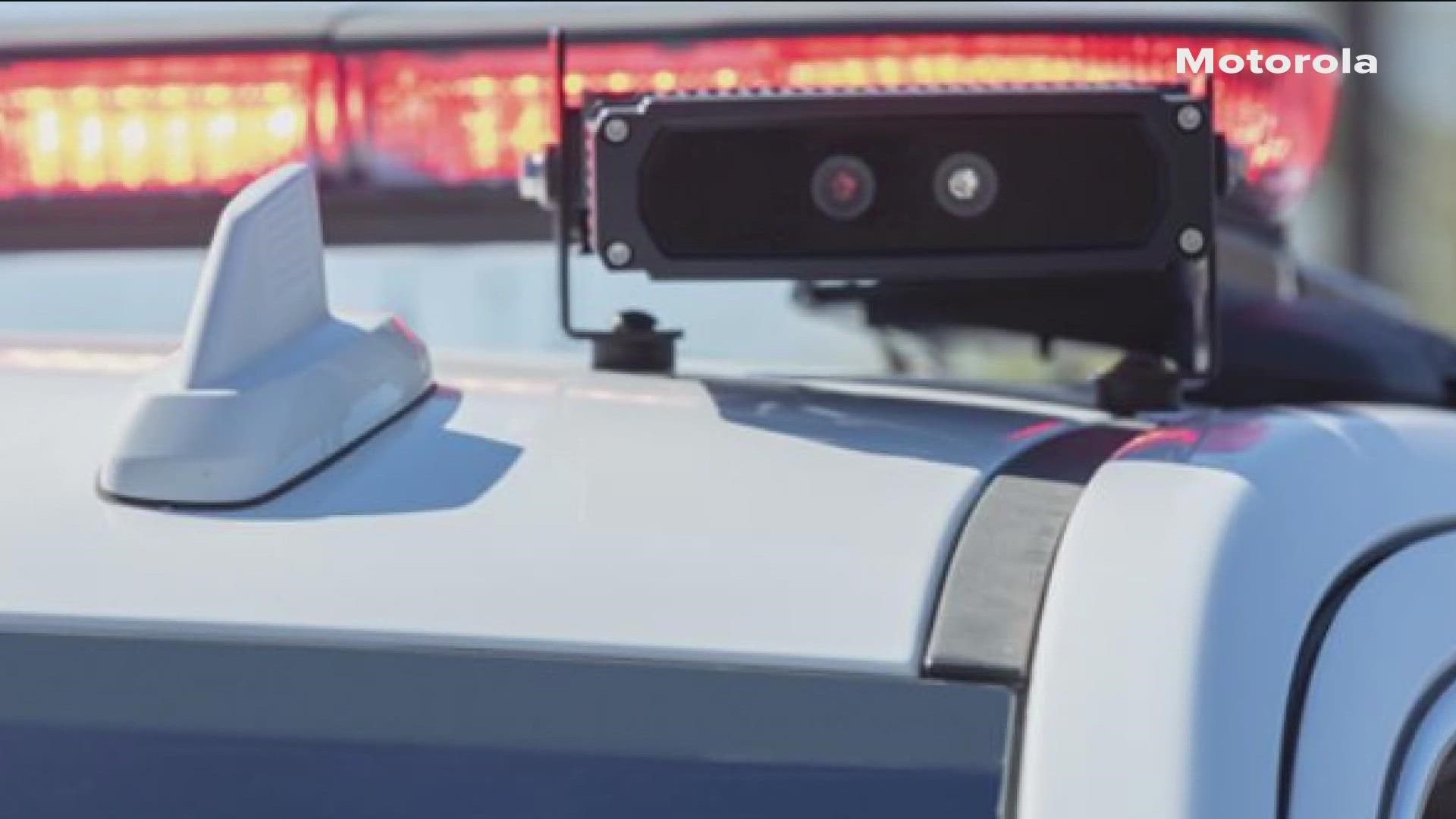AUSTIN, Texas — The Austin Police Department and Austin Councilmember Mackenzie Kelly are pushing to get license plate camera readers back on patrol vehicles, but there are some privacy concerns.
Right now, Austin police are down about 260 officers, according to the head of the police union. They hope these cameras will help solve crime.
The City had the Motorola LPR vigilant system from 2016 to 2020, but they were removed when Austin restructured the police department.
"From what I could tell, there are individuals in the community who didn't fully understand what the purpose of the software was and the technology," said Kelly. "There were concerns about privacy that unfortunately were not able to be addressed in time for the budget at that time."
Those concerns still loom for some. LPRs take photos of license plates as cars drive by. The make, model and color of the vehicle, time and location are stored on a database for a year, according to Assistant Chief Jason Staniszewski. During Tuesday's town hall, he said the department is looking into shortening the storage time.
"This technology would allow officers to locate stolen vehicles quicker," said Kelly. "It would allow for victims of trafficking or Amber Alerts or Silver Alerts to possibly be identified of their location sooner."
APD said the LPRs would go on patrol vehicles and trailers, using equipment they already have. Kelly said they wouldn't go on poles around town, unlike other cities. When activated for those four years, police said the cameras were helpful.
"In 2017, we were able to locate a kidnapped 2-year-old child from San Antonio," said Staniszewski.
While they've aided police in the past, there are still privacy concerns.
"If my cars are not stolen, why do they have to maintain data about where it was and when?" asked ACLU senior policy analyst Jay Stanley.
Stanley analyzed cameras like these and said he found privacy and discrimination concerns.
"The communities that tend to feel the brunt of them the most are vulnerable communities, communities of color, low-income communities," said Stanley.
Kelly said if police misuse the information, they could face criminal charges.
If reinstated, the cameras would be subject to quarterly audits and presented to the Public Safety Committee and Office of Police Oversight.
"But when the department did have this technology several years ago, each audit showed 100% compliance," said Kelly. "I will tell you that after speaking with the police chief, he is determined to ensure they are as transparent as possible."
The City could use $114,000 to reinstate these cameras as part of next year's budget.
PEOPLE ARE ALSO READING:

